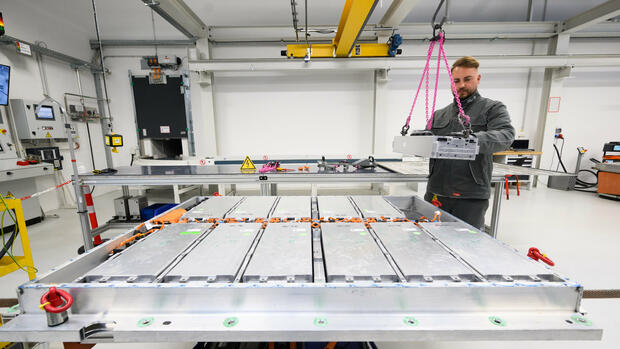Battery recycling in the European Union (EU) will be a « profitable and sustainable business » before 2035, according to a study published by the strategy consulting business unit of PricewaterhouseCoopers (PwC) Strategy& and RWTH Aachen University on Wednesday.
« The general increase in electrification and battery production due to e-mobility will drive the recycling market in Europe, » said Achim Kampker, head of Production Engineering of E-Mobility Components (PEM) at RWTH Aachen University.
After initial overcapacity, the EU’s recycling market would be fully utilized from 2030, processing around 570,000 tons of battery material annually. According to the study, this would require investments of more than 2.2 billion euros (2.4 billion U.S. dollars).
« Recycled material could account for up to 30 percent of the demand for lithium, nickel and cobalt in battery cell production in 2035 and double this share already by 2040, » said Joern Neuhausen, co-author and head of electromobility at Strategy&.
After initial regulations in 2013, South Korea and China were « leading the way in battery recycling » with battery recycling rates of around 90 percent, according to the study. By 2030, around 40 percent of all light vehicles globally will be electric, fueled by growth in the EU and China with a combined battery demand of more than 3.4 Terawatt hour (TWh).
In Germany, battery recycling is gaining momentum. In March, German carmaker Mercedes-Benz started construction work for a battery recycling factory at its Kuppenheim site. The mechanical dismantling of electric vehicle batteries is scheduled to start at the end of this year.
In June, German chemical giant BASF opened Europe’s first co-located center of battery material production and battery recycling in Schwarzheide. These were « important steps toward closing the loop for the European battery value chain, » the company said.
At the same time, EU regulations are tightening. In June, the European Parliament approved new rules for the design, production and waste management of all types of batteries sold in the EU. For the first time, these now cover their entire life cycle.
By 2027, 50 percent of the lithium used to make batteries is to be recycled. By 2031, this figure is to be as high as 80 percent. For cobalt, copper, lead and nickel, 90 percent of the raw material used in batteries is to be recycled by the end of 2027 and 95 percent by 2031.
« The battery regulation is a decisive step towards a more circular economy in the EU internal market, » said Steffi Lemke, Minister for the Environment, Nature Conservation, Nuclear Safety, and Consumer Protection, in July. « Batteries are a key product for the energy transition and for achieving the EU climate targets. » (1 euro = 1.09 U.S. dollar)































